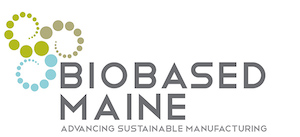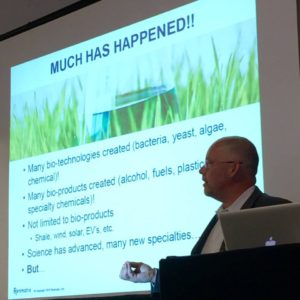Bill Gates Invests in Sugars from Trees
In case you haven’t heard, we have an abundance of wood fiber in Maine, specifically softwood. Depending on who you talk to, there is 3 or 4 MILLION tons of wood fiber just lying around. This is the BAD news. The GOOD news is that there is viable technology coming on-line to convert low-quality forest residuals into valuable sugars. These sugars are like chemical building blocks – you can turn them into fuels, chemicals, plastics, and other high-value biobased products for which there is rising global demand.
 Renmatix, a Pennsylvania has viable technology to convert trees into sugars. Renmatix uses supercritical water to extract the five- and six-carbon sugars from wood, along with lignin. Their technology is feedstock agnostic, which means they can use any type of plant in their process. So what about softwood from Maine? Yes they can.
Renmatix, a Pennsylvania has viable technology to convert trees into sugars. Renmatix uses supercritical water to extract the five- and six-carbon sugars from wood, along with lignin. Their technology is feedstock agnostic, which means they can use any type of plant in their process. So what about softwood from Maine? Yes they can.
Who, specifically, though, thinks that Renmatix’s technology is viable? BASF does. They invested in 2012. UPM invested in 2013, French Energy Group Total S.A. invested in 2015, and just this August the Department of Energy announced an $11 million investment that included Renmatix. AND, Renmatix just announced that Bill Gates is also backing them, to the tune of $14 million, which also includes a second-round from Total. Gates knows that there are many reasons to invest in biobased manufacturing, including reducing climate risk.
What are we doing to make cellulosic sugars in Maine from our woody biomass? We’re talking to Renmatix. In fact, they came and keynoted at our event in June. We’ve also secured a $0.5 million investment from the Department of Commerce that includes a specific task to accelerate the manufacture of cellulosic sugars in Maine. Join Biobased Maine and contact us to learn what you can do to help turn our idle fiber into valuable sugars and more importantly, jobs.

